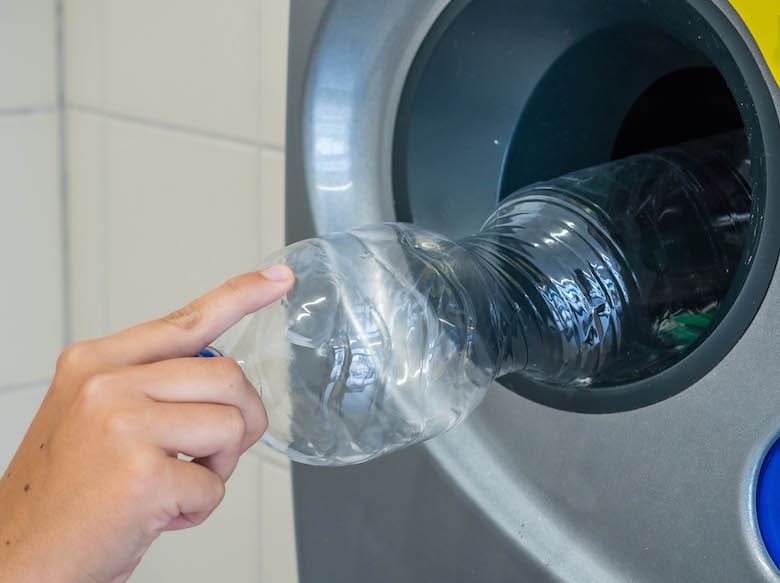Including cans and bottles made from plastics, aluminum, steel, and glass would also help to increase the capture of ‘recycling on the go’ materials, according to the Manchester-based resource recovery specialist.
Axion’s Head of Consulting, Richard McKinlay welcomes the ‘all-in’ approach because it removes the incentive for brands to offer discounted alternatives not included in the DRS scheme, such as water in cans instead of bottles. The alternatives, he says ‘may be more environmentally impactful’.
Commenting on Environment Secretary Michael Gove’s hints on the likely contents of the government’s Environment Bill due later this year, Richard continues: “I think a deposit return scheme is needed; especially from a quality point of view to ensure we’ve got a high-quality food-grade PET stream that allows recycling back into the highest quality applications.
“More and more brands and retailers are facing targets of including higher recycled content in packaging, yet currently we haven’t got the quantity or quality of the material to achieve that.”
Concerns have been raised that implementing a DRS will impact on existing kerbside collections as people will be encouraged to separate bottles from their household recycling to return them and claim their deposit back. Fewer numbers of polyethylene (PET) bottles in household collections would leave local authorities with the lower quality PET trays. With fewer PET bottles in the waste stream, the ones that are still there may be harder to sort and extract.
Consequently, more MRF infrastructure will be required to re-sort the waste stream for PET bottles. Investment in the recycling infrastructure will also be needed to handle the remaining PET pots, tubs, and trays.
On the plus side, Richard says the DRS will deliver better quality bottles for recycling. “It will be possible to recycle more bottles into bottles, and potentially, trays into trays, increasing the amount of food-grade rPET on the market. However, investment in the processing infrastructure will be necessary for that to work.”
Although the ‘all-in’ system will have many positives and will work towards creating a level playing field, there are issues that will need to be resolved. The inclusion of beverage cartons in the DRS should be considered, to remove the incentive for brands to switch to using them as an alternative. There will be hygiene issues with certain foodstuffs such as dairy so it may be prudent to exclude fresh milk packaged in natural HDPE.
Highlighting the need for wider reform, Richard concludes: “This initiative shouldn’t be seen as removing value from local authorities. Although there may be some impact, the bigger picture is that more material overall will be recycled back into high-quality products. DRS should be implemented as part of a broader reform of how we manage and recycle packaging waste, which should include Extended Producer Responsibility to remove the cost burden from Local Authorities.
“We should not be afraid to move away from the existing waste management infrastructure which is inherently unable to deliver on the Circular Economy.”
Axion works with a wide range of clients, from Government agencies and local authorities to companies in diverse commercial sectors, on the practical development of new processing and collection methods to recover value from waste resources.


















